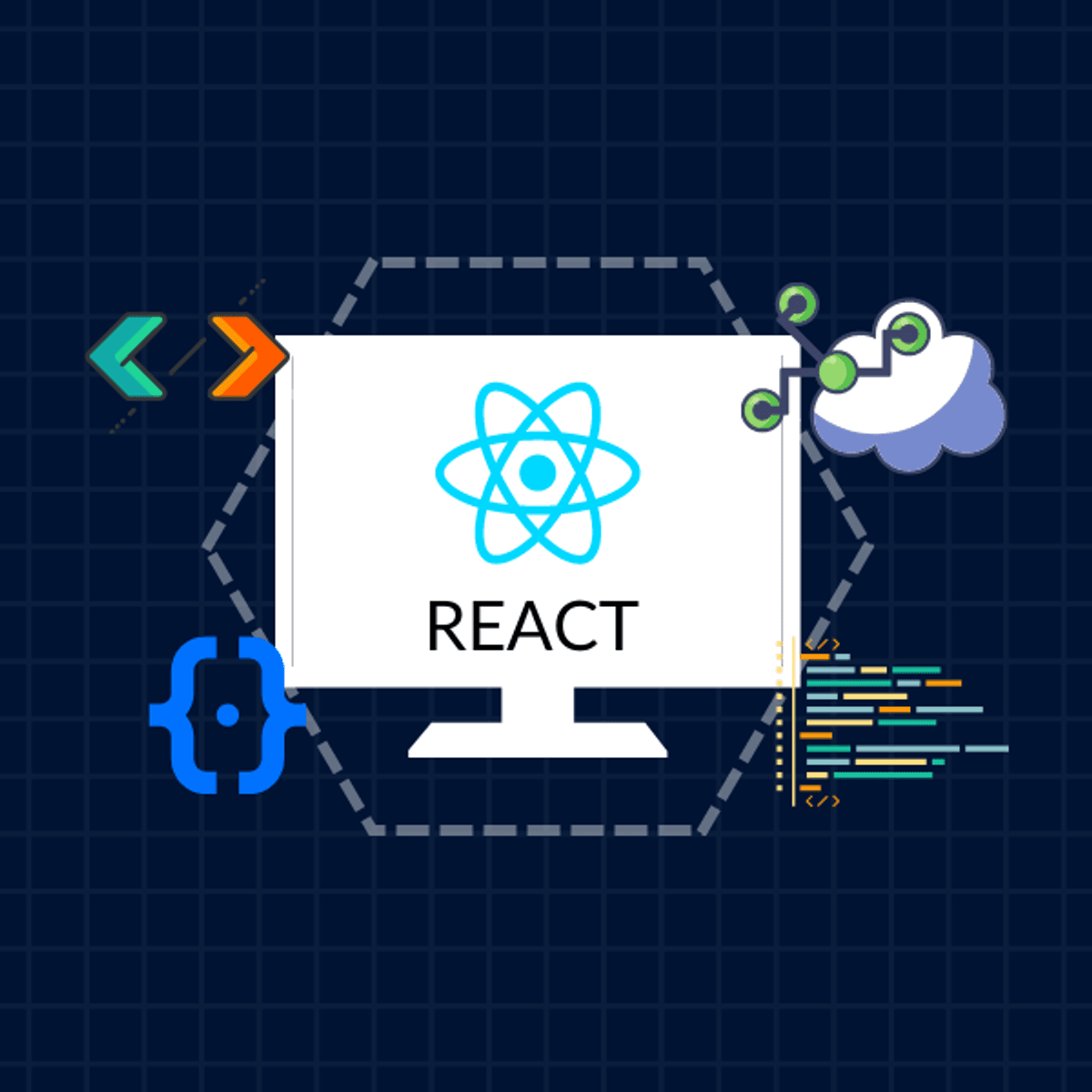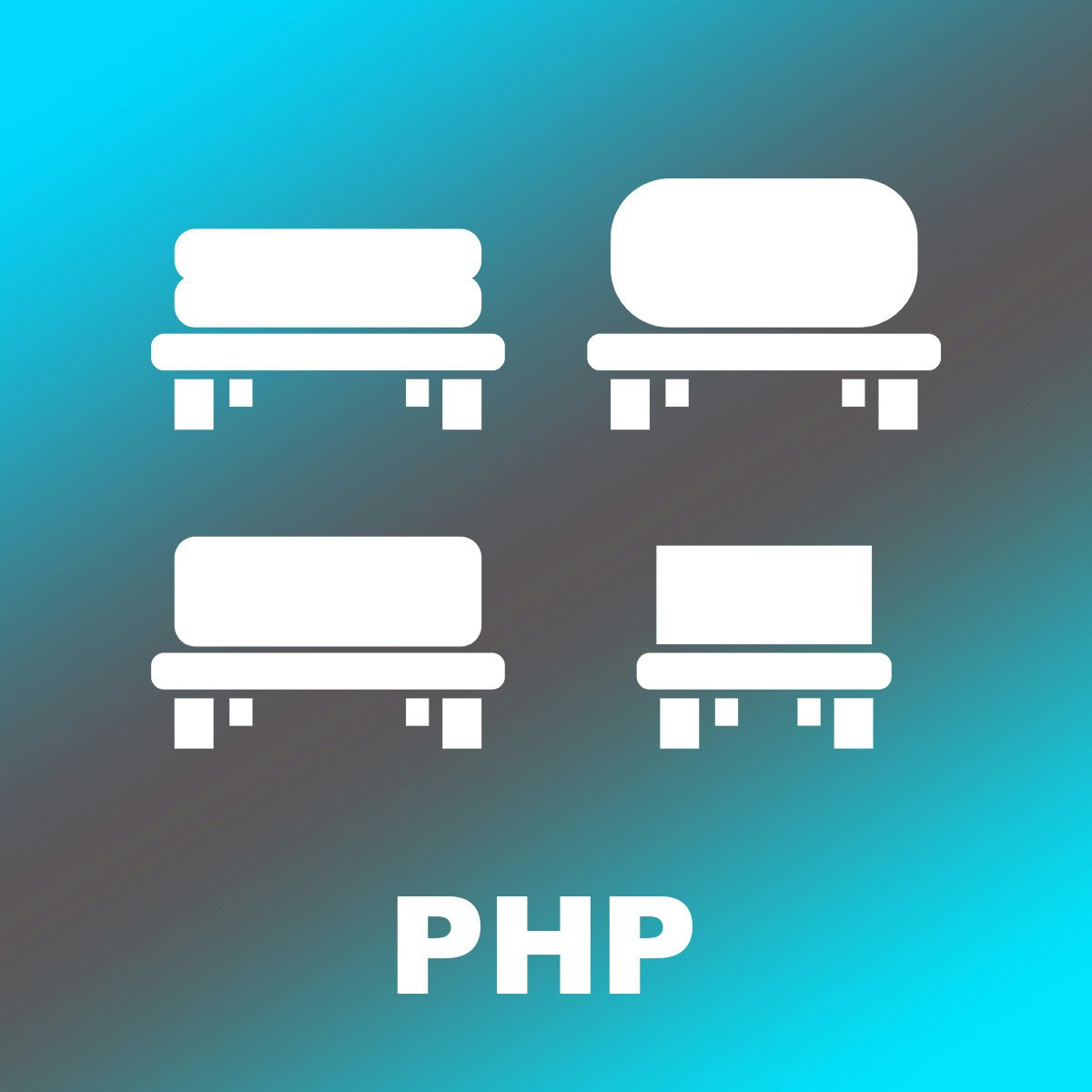Web Developer
Web Developer
Web development sits at the heart of the modern internet, involving the creation and maintenance of websites and web applications. It's the craft of translating human ideas into the digital interfaces we interact with daily, from simple blogs to complex e-commerce platforms and social networks. A web developer builds the structure, designs the look, and ensures the smooth functioning of these digital spaces.
Working as a web developer can be incredibly engaging. You often solve complex puzzles, combining logic and creativity to build functional and visually appealing products. The field is constantly evolving, offering continuous learning opportunities and the chance to work with cutting-edge technologies. Seeing your code come to life and serve users worldwide provides a unique sense of accomplishment.
What Does a Web Developer Do?
Understanding the role of a web developer begins with recognizing that it's not a monolithic position. The tasks and responsibilities can vary significantly based on specialization, the project's scope, and the team structure. However, the core objective remains consistent: to build and maintain functional, efficient, and often aesthetically pleasing websites and web applications.
Defining the Core Role
At its essence, web development is the work involved in developing a website for the Internet (World Wide Web) or an intranet (a private network). This can range from developing a simple single static page of plain text to complex web applications, electronic businesses, and social network services. A web developer uses programming languages and frameworks to bring digital concepts to life.
Their work ensures that websites load quickly, are easy to navigate, function correctly across different browsers and devices, and provide a positive user experience. They write code, test features, fix bugs, and often collaborate closely with designers, project managers, and clients to meet specific requirements and goals.
Web developers are the architects and builders of the digital world. They construct the online spaces where information is shared, business is conducted, and communities connect. Their skills bridge the gap between design concepts and functional online experiences.
Web Development vs. Related Fields
It's helpful to distinguish web development from closely related fields like software engineering and UX/UI design, though there can be overlap. Software engineering often encompasses a broader scope, including desktop applications, operating systems, and large-scale enterprise systems, not just web-based ones. While web development is a subset of software engineering, it specifically focuses on technologies and applications delivered via the web.
User Experience (UX) Design focuses on the overall feel and usability of the product. UX designers research user needs, create user flows, and ensure the product is intuitive and satisfying to use. User Interface (UI) Design concentrates on the visual aspects – the layout, colors, typography, and interactive elements. UI designers create the look and feel.
While web developers implement the designs created by UX/UI designers, they focus primarily on the technical construction and functionality. However, good developers often have a solid understanding of design principles and usability to effectively translate designs into working code. Collaboration between these roles is crucial for creating successful web products.
Key Objectives and Goals
The primary goal of a web developer is to build a website or application that meets the client's or employer's needs and functions reliably for end-users. This involves writing clean, efficient, and maintainable code. They strive for performance, ensuring web pages load quickly and respond smoothly to user interactions.
Security is another critical objective. Developers must implement measures to protect the website and user data from potential threats and vulnerabilities. They also aim for cross-browser and cross-device compatibility, making sure the site works consistently regardless of how users access it.
Ultimately, a web developer works to create a seamless digital experience. Whether it's ensuring an online store processes payments correctly or a blog displays content clearly, their technical expertise underpins the functionality that users rely on every day. Meeting project deadlines and staying within budget are also practical objectives in most professional settings.
Specializations in Web Development
The field of web development is broad, leading many professionals to specialize in specific areas. The most common specializations are front-end, back-end, and full-stack development. Understanding these distinctions helps clarify the different roles and skill sets within the industry.
Front-End Development: The User Interface
Front-end developers focus on the client-side of web development – everything the user directly interacts with in their browser. They are responsible for implementing the visual elements and user interface components designed by UI/UX designers. Their primary tools are HTML for structure, CSS for styling, and JavaScript for interactivity.
They use frameworks and libraries like React, Angular, or Vue.js to build dynamic and responsive user interfaces efficiently. Ensuring the website looks good and functions correctly across various devices (desktops, tablets, phones) and browsers (Chrome, Firefox, Safari) is a key responsibility. They focus on user experience, performance, and accessibility.
These courses provide a solid introduction to the core technologies used in front-end development, focusing on HTML, CSS, and JavaScript to build the user-facing parts of websites.
Back-End Development: The Server Side
Back-end developers work on the server-side of web applications – the hidden machinery that powers the front-end. They manage databases, server logic, application integration, and APIs (Application Programming Interfaces). Their work ensures data is stored securely, retrieved efficiently, and processed correctly.
Common back-end languages include Python (with frameworks like Django or Flask), Java, Ruby, PHP, and Node.js (which allows JavaScript to be used on the back-end). They work extensively with databases like PostgreSQL, MySQL (SQL), or MongoDB (NoSQL) to manage application data. Building robust APIs that the front-end can communicate with is a crucial part of their role.
Back-end development focuses on the logic, data management, and infrastructure that users don't see but are essential for the application to function. Security, scalability, and performance optimization are major concerns for back-end developers.
Full-Stack Development: Bridging Both Worlds
Full-stack developers possess skills in both front-end and back-end development. They are comfortable working with the entire technology stack, from the user interface down to the database and server infrastructure. This versatility allows them to build complete web applications from start to finish or contribute effectively across different parts of a project.
While they might not have the same depth of expertise in every single area as a specialist, full-stack developers have a broad understanding that enables them to see the bigger picture and tackle diverse challenges. This role is particularly valuable in smaller teams or startups where individuals may need to wear multiple hats. The definition of "full-stack" can vary, but it generally implies competence across the entire web development process.
Essential Technical Skills and Tools
Becoming a proficient web developer requires mastering a range of technical skills and becoming familiar with various tools. The landscape changes rapidly, but a core set of technologies forms the foundation for most web development work.
Fundamental Languages: HTML, CSS, JavaScript
HyperText Markup Language (HTML) is the standard markup language for creating web pages. It provides the basic structure and content elements, like headings, paragraphs, images, and links. Cascading Style Sheets (CSS) is used to control the presentation, formatting, and layout of the content defined by HTML. It dictates colors, fonts, spacing, and responsiveness.
JavaScript is the programming language that brings interactivity and dynamic behavior to websites. It allows developers to manipulate HTML and CSS, handle user events (like clicks and form submissions), make asynchronous requests to servers (AJAX), and much more. Mastery of these three core technologies is essential for any web developer, particularly those focusing on the front-end.
These foundational texts cover the core languages essential for web development. They offer comprehensive guidance on HTML, CSS, and JavaScript.
Popular Frameworks and Libraries
Frameworks and libraries provide pre-written code and structures to streamline development. On the front-end, popular choices include React (a library developed by Facebook), Angular (a framework developed by Google), and Vue.js. These tools help build complex user interfaces efficiently using a component-based architecture.
For the back-end, common frameworks include Node.js with Express (JavaScript-based), Django and Flask (Python-based), Ruby on Rails (Ruby-based), and Spring (Java-based). These frameworks simplify tasks like routing requests, handling databases, and managing user sessions.
Version Control and Collaboration: Git
Git is the industry-standard distributed version control system. It allows developers to track changes to their codebase over time, revert to previous versions if needed, and collaborate effectively with others on the same project. Platforms like GitHub, GitLab, and Bitbucket provide hosting for Git repositories and additional collaboration features.
Understanding Git commands for staging changes, committing, branching, merging, and resolving conflicts is a fundamental skill for any professional developer. It ensures code integrity and streamlines teamwork, especially in larger projects with multiple contributors.
Database Management Systems
Most web applications need to store and retrieve data, requiring interaction with databases. Developers need familiarity with database concepts and specific systems. Relational databases, which use Structured Query Language (SQL), are common. Examples include PostgreSQL, MySQL, and SQL Server.
NoSQL databases offer alternatives for different data structures and scaling needs. Examples include MongoDB (document-based), Cassandra (columnar), and Redis (key-value store). Understanding database design, querying, and optimization is crucial, especially for back-end and full-stack developers.
Educational Pathways to Web Development
There isn't a single prescribed path to becoming a web developer. Individuals enter the field through various educational routes, including formal university degrees, specialized bootcamps, and self-directed online learning. The best path often depends on individual learning styles, career goals, and available resources.
Formal Degrees and Relevant Coursework
Many web developers hold bachelor's degrees in Computer Science, Information Technology, Software Engineering, or related fields. These programs provide a strong theoretical foundation in computing principles, algorithms, data structures, database management, and software design – all relevant to web development.
University coursework often includes specific classes on web programming, database systems, network protocols, and human-computer interaction. While a formal degree offers structured learning and recognized credentials, it typically takes four years and involves broader coursework beyond just web technologies.
A degree can be advantageous for certain roles or companies, particularly larger, more established organizations. However, it is increasingly common for developers to succeed without a traditional four-year degree, especially if they can demonstrate strong practical skills and a compelling portfolio.
The Role of Certifications and Bootcamps
Coding bootcamps have emerged as a popular alternative or supplement to traditional degrees. These intensive, short-term programs (typically 3-6 months) focus specifically on teaching practical web development skills required for entry-level jobs. They emphasize hands-on projects and often incorporate career services.
Certifications, offered by tech companies (like AWS, Google Cloud) or industry organizations, can validate expertise in specific technologies or platforms (e.g., cloud services, specific frameworks). While not always required by employers, they can enhance a resume and demonstrate commitment to specialized skills.
Bootcamps and certifications offer a faster, more focused route into the industry compared to a four-year degree. However, their quality and effectiveness can vary significantly. Prospective students should research programs thoroughly, considering curriculum, instructor experience, job placement rates, and cost before enrolling. They often lack the deep theoretical foundation provided by university programs.
Self-Directed Learning and Online Resources
The accessibility of online resources has made self-directed learning a viable and increasingly popular pathway into web development. Many successful developers are largely self-taught, leveraging online courses, tutorials, documentation, and communities to build their skills.
If you are considering a career change or are new to tech, the prospect of learning complex skills independently can seem daunting. It requires discipline, persistence, and a proactive approach. Remember that many others have successfully navigated this path. Start small, celebrate milestones, and don't be discouraged by challenges – they are part of the learning process.
Is a Self-Taught Path Realistic?
Absolutely. Web development is a field where practical skills and demonstrable ability often outweigh formal credentials. Numerous free and affordable resources are available online, covering everything from basic HTML to advanced frameworks and server management. Platforms like OpenCourser aggregate thousands of courses, making it easier to find learning materials.
The key to success as a self-taught developer lies in structure, consistency, and practical application. It's not enough to simply watch videos or read tutorials; you must actively code, build projects, and solve problems. Creating a portfolio of your work is crucial to showcase your abilities to potential employers.
While the path requires self-motivation, it offers flexibility and allows you to learn at your own pace. Many employers value the initiative and problem-solving skills demonstrated by successful self-taught developers.
These courses offer comprehensive introductions suitable for self-paced learning, covering the full spectrum from basic HTML/CSS/JavaScript to full-stack development.
Learning Through Projects
Project-based learning is one of the most effective ways to solidify web development skills. Instead of just learning concepts in isolation, apply them immediately by building something tangible. Start with small projects, like a personal portfolio website, a simple blog, or a to-do list application.
As your skills grow, tackle more complex projects. Replicate features from existing websites, contribute to open-source projects, or develop an application that solves a problem you care about. Each project adds to your experience and provides valuable content for your portfolio.
Building projects forces you to encounter real-world challenges, debug code, and integrate different technologies. This practical experience is invaluable and demonstrates your ability to deliver working software far more effectively than certificates or course completions alone.
Leveraging Online Courses and OpenCourser
Online courses offer structured learning paths covering specific technologies or broader development skills. Platforms aggregated by OpenCourser host thousands of courses from universities and industry experts, ranging from introductory tutorials to advanced specializations.
OpenCourser helps learners navigate this vast landscape. You can search for courses on specific topics like Programming, compare syllabi, read summarized reviews, and even find deals on course enrollments. Features like saving courses to a list help organize your learning journey.
To maximize the benefit of online courses, supplement them with active practice. Complete coding exercises, work on the suggested projects, and try applying the concepts to your own ideas. The OpenCourser Learner's Guide offers tips on structuring your learning, staying motivated, and effectively using online resources for career development.
These courses focus on building practical web applications, providing excellent opportunities for project-based learning.
Career Path and Market Opportunities
A career in web development offers diverse opportunities and potential for growth. Understanding the typical career trajectory, employment options, and market demand can help you plan your path in this dynamic field.
Entry-Level Roles and Internships
Most developers start their careers in entry-level positions such as Junior Web Developer, Front-End Developer, or Back-End Developer. Internships provide valuable real-world experience while still studying or during a career transition. These roles typically involve working under the guidance of senior developers, focusing on smaller tasks, fixing bugs, and learning the team's codebase and workflows.
The focus at this stage is on building practical skills, understanding development processes, and contributing to team projects. Strong foundational knowledge of HTML, CSS, JavaScript, and perhaps one or two frameworks is usually expected. A portfolio showcasing personal projects or contributions can significantly strengthen an application.
Landing the first job can be challenging, requiring persistence and a willingness to learn continuously. Networking, contributing to open-source, and tailoring applications to specific companies can improve chances.
Mid-Career Advancement
With experience (typically 3-5 years), developers can advance to mid-level and senior roles. Senior Developers take on more complex tasks, lead features or small projects, mentor junior developers, and contribute to architectural decisions. Specialization often deepens, perhaps focusing on a specific framework, performance optimization, or cloud infrastructure.
Other mid-career paths include becoming a Technical Lead (leading a development team), a Software Architect (designing system structures), or moving into related areas like DevOps (bridging development and operations) or Product Management. Continued learning and adapting to new technologies are crucial for career progression.
Compensation generally increases significantly with experience and demonstrated expertise. Strong problem-solving skills, effective communication, and the ability to lead become increasingly important.
Freelancing vs. Corporate Employment
Web developers have the flexibility to choose between traditional corporate employment and freelancing. Corporate jobs offer stability, benefits, structured teams, and often opportunities to work on large-scale projects within established companies.
Freelancing provides autonomy, flexibility in choosing projects and working hours, and the potential for higher earning rates (though income can be less predictable). Freelancers manage their own business aspects, including finding clients, negotiating contracts, and handling finances. Success requires strong self-discipline, communication skills, and business acumen.
Some developers combine both, working full-time while taking on occasional freelance projects. The best choice depends on individual preferences regarding stability, autonomy, and work style. The rise of remote work has further blurred the lines, offering more flexible arrangements even within traditional employment.
According to the U.S. Bureau of Labor Statistics, employment for web developers and digital designers is projected to grow faster than the average for all occupations over the next decade, indicating continued demand for these skills.
Emerging Trends in Web Development
The web development landscape is constantly shifting, influenced by technological advancements and changing user expectations. Staying aware of key trends is essential for developers looking to remain relevant and effective in their careers.
AI and Automation in Development
Artificial intelligence (AI) is increasingly impacting web development. AI-powered tools like GitHub Copilot can assist developers by suggesting code snippets, completing lines of code, and even generating entire functions based on natural language descriptions. This can accelerate development speed and help automate repetitive tasks.
While AI can boost productivity, it's unlikely to replace developers entirely soon. Instead, developers will need to learn how to leverage these tools effectively, focusing on higher-level problem-solving, system design, and ensuring the quality and security of AI-generated code. Understanding AI's capabilities and limitations is becoming a valuable skill.
Remote Work and Global Collaboration
The trend towards remote work has accelerated significantly, particularly in the tech industry. Web development is well-suited to remote arrangements, allowing companies to tap into a global talent pool and developers to enjoy greater flexibility. This shift emphasizes the importance of strong communication skills, effective collaboration tools (like Git, Slack, video conferencing), and self-management abilities.
Global job markets mean increased competition but also more opportunities. Developers may find themselves working on distributed teams across different time zones. Adapting to asynchronous communication and building trust within remote teams are key aspects of this evolving work environment. Data from firms like Gallup often track trends in remote work adoption across various industries.
Focus on Performance, Accessibility, and Responsiveness
User expectations for fast, accessible, and seamless experiences across all devices continue to drive development priorities. Performance optimization techniques, ensuring websites load quickly and run smoothly, remain critical. This includes optimizing images, minimizing code, and leveraging browser caching.
Web accessibility (Web Accessibility), designing and building websites usable by people with disabilities, is increasingly recognized as essential, both ethically and legally (e.g., WCAG guidelines). Developers need skills in writing semantic HTML, using ARIA attributes, and testing with assistive technologies.
Responsive web design, ensuring sites adapt gracefully to different screen sizes, is now standard practice. Mastering techniques like fluid grids, flexible images, and media queries is fundamental for modern front-end development.
Navigating the Challenges
While web development offers rewarding opportunities, it also comes with its own set of challenges. Being aware of these potential hurdles can help aspiring and current developers prepare and build resilience for a long-term career in the field.
If you're exploring this career, especially as a pivot, know that encountering difficulties is normal. The fast pace can feel overwhelming at times. Focus on building a solid foundation, embrace lifelong learning, and connect with communities for support. Persistence is key.
Keeping Pace with Technology
The web development ecosystem evolves at a breakneck speed. New languages, frameworks, libraries, and tools emerge constantly, while existing ones are frequently updated. Developers must commit to continuous learning to stay relevant and effective. What's cutting-edge today might be outdated in a few years.
This requires regularly reading blogs, following industry news, experimenting with new technologies, and potentially taking new courses or attending workshops. Balancing project deadlines with learning time can be demanding. It's important to focus on understanding fundamental concepts, which tend to be more stable than specific tools.
Work-Life Balance and Deadlines
Web development projects often operate under tight deadlines, especially in agency or startup environments. This can lead to periods of intense work, long hours, and pressure to deliver features quickly. Managing scope creep (when project requirements expand unexpectedly) and handling urgent bug fixes can also contribute to stress.
Maintaining a healthy work-life balance requires effective time management, setting realistic expectations (both for oneself and clients/managers), and establishing boundaries. Burnout is a real risk in the industry, making self-care and stress management important long-term considerations.
Technical Hurdles: Compatibility and Debugging
Ensuring a website or application works correctly across different web browsers (Chrome, Firefox, Safari, Edge) and various versions can be challenging due to inconsistencies in how they render code. Similarly, achieving consistent performance and appearance across diverse devices (desktops, laptops, tablets, smartphones) with varying screen sizes and capabilities requires careful testing and responsive design techniques.
Debugging – the process of finding and fixing errors in code – is an inherent part of development. Identifying the root cause of bugs, especially subtle ones or those that only appear under specific conditions, can be time-consuming and frustrating. Strong analytical and problem-solving skills are essential.
Ethical Responsibilities in Web Development
Beyond technical proficiency, web developers also bear ethical responsibilities related to the products they build and the impact those products have on users and society. Considering these implications is becoming increasingly important in the digital age.
Data Privacy and Security
Web developers often handle sensitive user data, from personal information to financial details. They have an ethical obligation to implement robust security measures to protect this data from breaches and unauthorized access. This includes secure coding practices, proper data encryption, and secure authentication methods.
Compliance with data privacy regulations, such as the General Data Protection Regulation (GDPR) in Europe or the California Consumer Privacy Act (CCPA), is crucial. Developers must understand these regulations and build systems that respect user privacy rights, including obtaining consent for data collection and providing users control over their data.
Accessibility and Inclusivity
Building accessible websites ensures that people with disabilities can perceive, understand, navigate, and interact with the web. This is not just a legal requirement in many contexts but also an ethical imperative for inclusivity. Developers should strive to follow accessibility guidelines (like WCAG) to make their creations usable by everyone, regardless of ability.
This involves using semantic HTML correctly, providing text alternatives for images, ensuring keyboard navigability, maintaining sufficient color contrast, and testing with assistive technologies like screen readers. Designing for inclusivity goes beyond technical compliance, considering diverse user needs and experiences.
Algorithmic Bias and Digital Impact
While perhaps more pronounced in AI and machine learning, algorithms used in web applications (e.g., for content recommendations, search results, or filtering) can inadvertently perpetuate or amplify societal biases if not carefully designed and tested. Developers should be aware of the potential for bias in the systems they build and strive for fairness and transparency.
Furthermore, the infrastructure powering the web consumes significant energy. While individual developers have limited control, awareness of the environmental impact of web technologies and exploring more sustainable development practices (e.g., optimizing code for efficiency, choosing green hosting providers) is an emerging ethical consideration.
Frequently Asked Questions about Web Development Careers
Many individuals exploring web development have common questions about entering and navigating the field. Here are answers to some frequently asked questions, based on current industry understanding.
Is a formal degree mandatory to become a web developer?
No, a formal degree (like a Bachelor's in Computer Science) is not strictly mandatory to become a web developer. Many successful developers are self-taught or have completed coding bootcamps. What matters most to employers is demonstrable skill, a strong portfolio of projects, and the ability to solve problems effectively. However, a degree can provide a strong theoretical foundation and may be preferred or required by some employers, particularly larger or more traditional organizations.
How long does it typically take to get the first job?
The time it takes to land the first web developer job varies greatly depending on individual background, learning pace, dedication, portfolio quality, networking efforts, and the local job market. Some bootcamp graduates find jobs within a few months, while self-taught individuals might take six months to over a year of dedicated learning and project building before securing their first role. Consistency, building a strong portfolio, and actively networking are key factors.
Can web developers transition into fields like AI or Cybersecurity?
Yes, web development provides a solid technical foundation that can facilitate transitions into other tech fields. Skills in programming, problem-solving, and understanding systems are transferable. Moving into Artificial Intelligence (AI) might require further learning in mathematics, statistics, and machine learning algorithms. Transitioning into Cybersecurity often involves specializing in areas like network security, penetration testing, or secure coding practices, potentially requiring additional certifications or coursework.
What industries hire the most web developers?
Web developers are in demand across nearly every industry. Major employers include technology companies (software, hardware, internet services), finance and insurance, retail (especially e-commerce), information services, consulting firms, educational institutions, healthcare, and government agencies. Essentially, any organization with a significant online presence or internal web-based applications needs web developers.
How competitive is the job market?
The job market for web developers is generally considered strong, with projected growth faster than average according to sources like the BLS. However, it can be competitive, especially for entry-level positions where many aspiring developers are vying for opportunities. Specializing in in-demand technologies, building a compelling portfolio, gaining practical experience, and strong communication skills can significantly improve competitiveness. Mid-level and senior roles often see high demand with fewer qualified candidates.
Are coding bootcamps worth the investment?
Coding bootcamps can be a valuable investment for some, offering an intensive, focused path to acquiring job-ready skills relatively quickly. They often provide career support services as well. However, their effectiveness varies. Success depends on the quality of the program, the student's commitment, and realistic expectations. Bootcamps are expensive and demanding. Thorough research into specific programs, their curricula, instructor quality, and verified graduate outcomes is essential before committing.
A career as a Web Developer offers a path filled with creative problem-solving, continuous learning, and the satisfaction of building the digital tools and platforms that shape our modern world. It requires a blend of technical skill, logical thinking, and often an eye for design. While challenges like the rapid pace of technological change exist, the opportunities for growth and impact are substantial for those with passion and persistence.












































